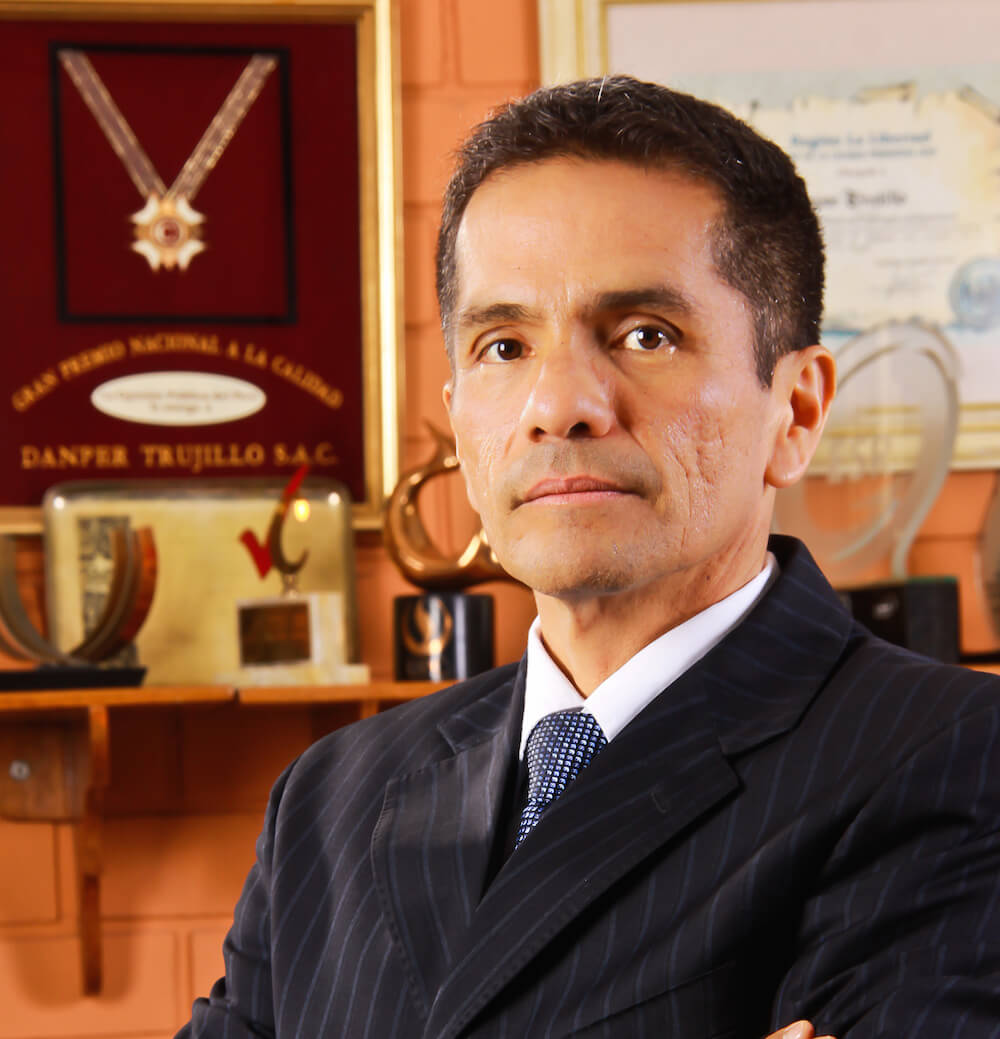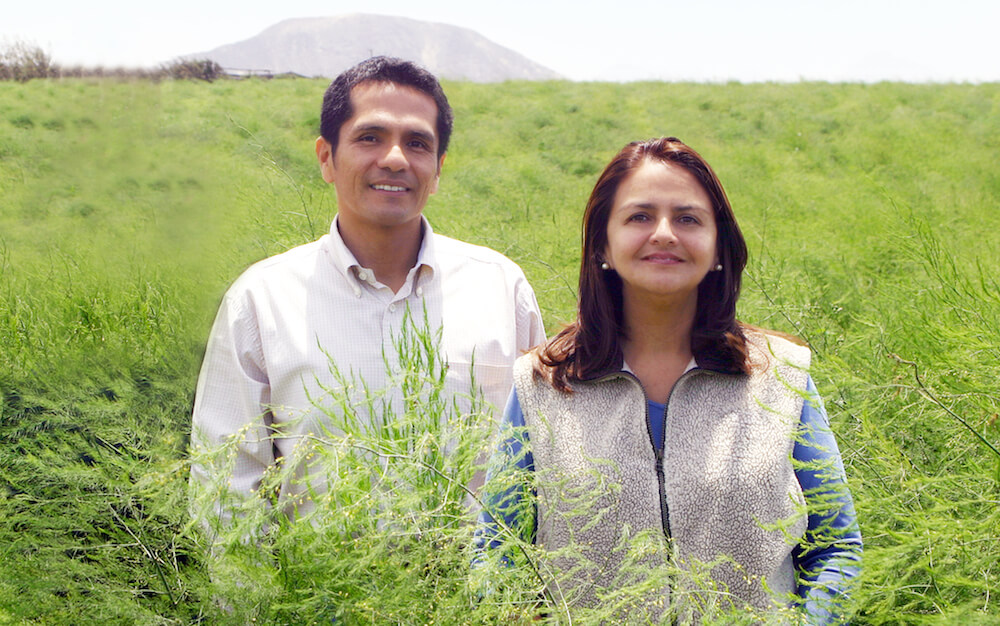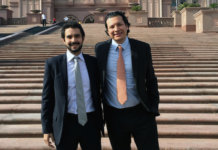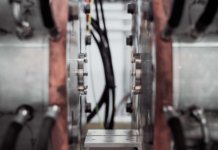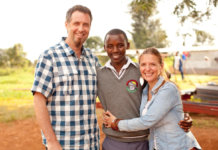Interview with Jorge Aranguri Carranza Founder, Danper, Peru
When husband and wife team Jorge Aranguri and Rosario Bazan started their Peruvian agri-business company Danper in 1994, they did far more than just set the foundation for a fast-growing company. Not only did the couple pioneer in producing specially grown foods for export such as asparagus, artichokes and other products not native to Peru, but when clients and business partners were introduced to Rosario Bazan as the company’s CEO, more than a few eyebrows were raised since female executives were not the norm at the time. Despite the resistance faced, Jorge and Rosario continued to champion the causes of gender equality, health care and education for their workforce. Additionally, putting a great emphasis on environmental consciousness, the Carranzas were ahead of their time in more ways than one and 23 years later, Danper is a shining example of what determination can do with more than 8,500 workers and 10,000 hectares of cultivated fields by the north and south coast, as well as in the central and southern highlands of Peru.
Tharawat Magazine had the opportunity to sit down with Jorge Aranguri to discuss his company’s journey and the impact they’ve had not just on the local economy but also Peruvian society.
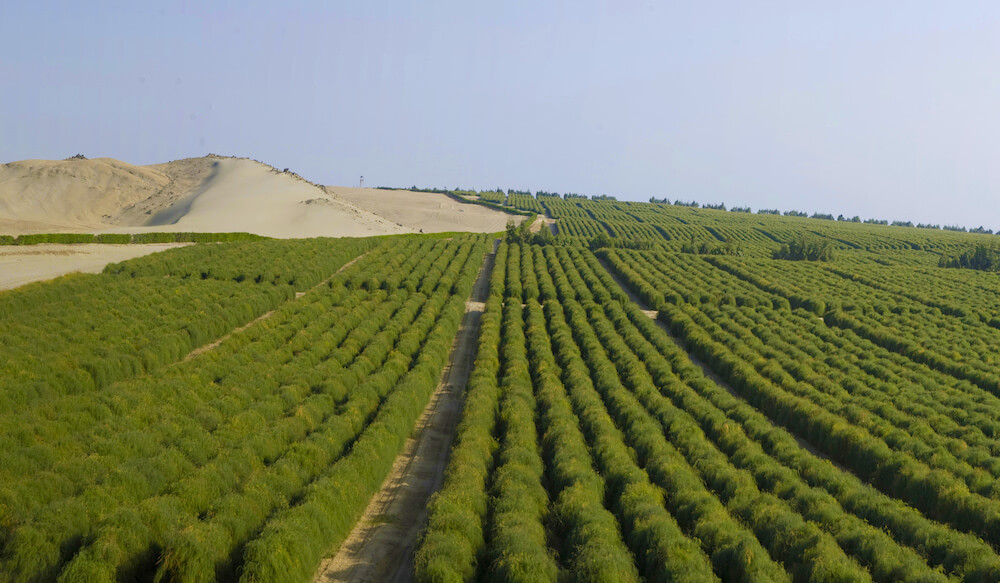
How did you and your wife get into the agri-food business? Was it a lifelong passion for agriculture and food, or was it an entrepreneurial opportunity that you saw?
I would say both. When we started, even before establishing Danper, it was the mid-’80’s, and Peru was going through very tough times. We were facing both an economic crisis and terrorist activity, so basically, the country was collapsing. Inflation was very high at the time and getting worse and worse by the day. My wife and I as college students were asking ourselves, ‘Should we leave this country, or should we stay? And if we stay, what should we do?’ We did some research and saw just how strong the economy was in the northern hemisphere. That made us say, ‘Why don’t we try to export something where there is a greater opportunity?’ So with that in mind, we entered into a contract with a European company to supply them with frozen pineapple. But with inflation rising and the banks collapsing, we were trapped in a perfect storm that caused us to go broke. But even though we went broke, we still fulfilled our contractual obligations. I believe that was a point of honour that created a name for us. We became known for having values and being ethical. The Danish firm that became one of the key partners in Danper heard about us because of that reputation we gained in our early days in the industry. Some years after that we started Danper.
Let’s talk about Danper. What exactly is it that you do today?
In Danper what we’re doing is providing solutions to our consumers through our food products. We are following the current consumer trend which is very much focused on nutritious, healthy, exotic, tasty food while still ensuring protein content. Here in Peru, we have Andean super greens that go back to the time of the Inca, so they’ve been eaten in Peru for thousands of years. We also started growing asparagus which is not typically a Peruvian food but is grown mainly for exportation which is a unique model. Some years later, we incorporated artichokes and peppers. And so, we have a line of products that are similar to Mediterranean products but grown in Peru.

What were the challenges Rosario and yourself faced in the early days of running Danper?
One challenge that we faced at the time was that of gender equality: The board asked me to be the CEO of Danper but I couldn’t take that role as I was already in charge of another company that Rosario and myself had created some years ago which was successfully bringing solutions to the main European food operators at that time. So Rosario was appointed as CEO of Danper. A woman at the helm of an agribusiness operation which is typically dominated by men posed many challenges. There were many times where my wife and I arrived at meetings, and she introduced herself as the CEO, and everyone just looked at her like, ‘What are you talking about?’ We had to affirm repeatedly that we made that decision based on capabilities and that gender had nothing to do with it.
And the other challenge was to convince women in 1990’s Peru to join us at Danper. We wanted to give them a choice to join us and be part of our workforce and to generate income for their families. So, that was the second challenge: to raise the self-esteem of those ladies to a higher level. Especially, with most of them coming from a poorly educated working class background.
Was it difficult to get your environment to accept and understand the benefits of what you were doing?
Very much so. It was the same when we brought in medical care as part of our business operations. When we gave mothers jobs, and they would have to be away from their homes, they would say, ‘What about my children? I have to stay home because my child is ill.’ So we said, ‘We will provide a medical centre here on site.’ The banks were telling us that it was a waste of money and not part of our core strategy. But we looked at it as a way to create productivity. They’ll have peace of mind because if anything happens with their kids, or with themselves, they can come to a medical centre on site and they will find the healthcare they require.
But this was just the beginning. Because once we were in the rural areas with the medical centres, we could get in touch with the schools, and we saw how poor the education system was. We quickly realized that we needed to be part of a solution. So we worked with the mayors and with foreign institutions to create programs to improve the level of education in many rural areas in Peru.

In what other ways did you differ from businesses in your industry at the time?
We strongly believed it was important to create a democratic mentality inside our organisation. In Peru, to have a worker’s union, it’s seen as a bad thing. Because a union is usually the result of a fight; a misunderstanding between the workers and the management. So, we created clubs based on the type of work people are doing within the organisation. If you are somebody in charge of a field, you will have your own representative. You will be part of a club, and you will have a voice.
We jumped into the environmental issue as well. We realised that we had to take care of resources like water and to educate people not to throw garbage into the rivers. We had to press the authorities to create drainage systems and running water in the rural towns.
Of course, we also needed to make a profit because that’s the spine of the whole business. But with efficient and knowledgeable professionals inside the organisation, in marketing, commercial financing, agriculture, all the technologies, we certainly create profit without sacrificing our social commitment or environmental commitment. We see it altogether connected within the organisation.
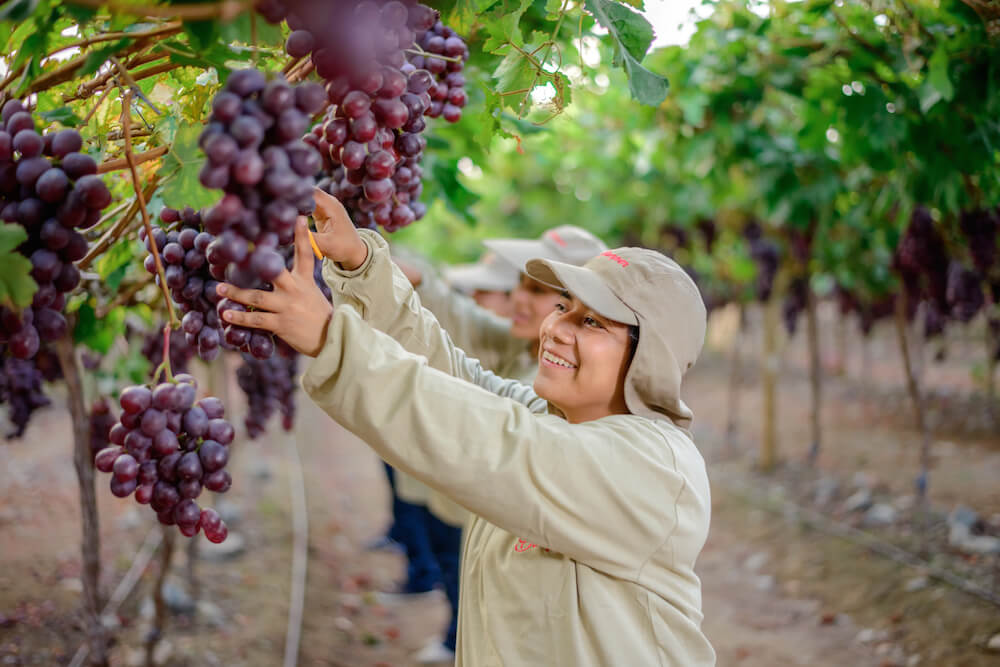
What is your biggest concern with regards to the food industry in the future? Where do you think your industry is going?
In almost every country, regulators are coming up with stricter rules than before. But between where we are and where we need to be, there is a gap. And that gap is called technology. We need more and more, and faster knowledge. I would say the food industry has never been more connected to food science than it is right now. But we really need to apply science to the food industry at a more rapid pace.
Often people in this industry were looked at as ‘just farmers’. But, we are coming to the kind of precision in innovation and consumer needs that require a high degree of technology to be involved. And we feel it every day because here in Peru we have a huge weakness that we are not really creating technology due to the lack of education and everything. But, we are able to import. That’s something we really need to move on very fast.

Are you hoping your children will join the business?
My wife and I, we certainly hope so. My oldest child is 23 and Danper is also 23. They grew up together. My two children say that Danper is their brother. Now, as young adults, they have expressed their desire to join the company at some point. We’ll have a corporate governance system implemented. It’s a basic one still, but when my kids decide to join the company, it should be done right. They have to prove that they are good enough, and they have to compete and apply for the job. Of course, they will be shareholders of Danper eventually.
We already have young people working in the company. Youths who have started their careers at Danper. We can already see the benefits.
